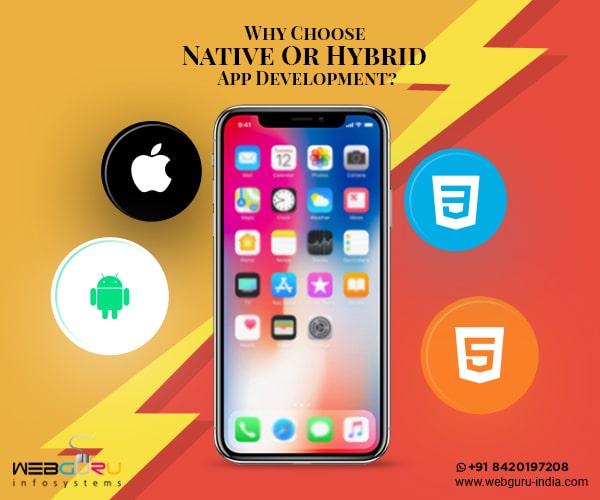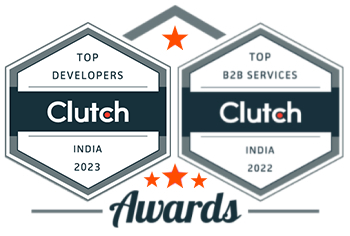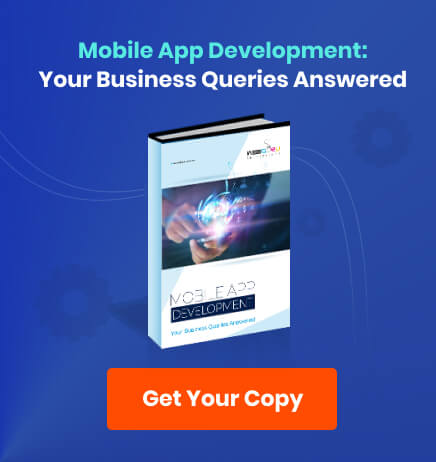Home Blog Mobile App Development Which Is Better-Native Or Hybrid App Development?
Which Is Better-Native Or Hybrid App Development?
- 13 Sep / 2019
- 7,522 views

Smartphones have grown into perhaps the most personal device in the history of humanity. With your phone sharing more time with you than your significant other, it’s no wonder that more and more people are increasingly turning to mobile apps for solutions to their day to day problems. And as the demand for mobile apps continues to grow-according to businessofapps.com, currently there are close to five million apps for Android and iOS combined.
However, whether you are a business looking for an app presence or a would-be entrepreneur with the next killer app idea before you start to have your app developed you need to first decide whether you want to go with a native app or a hybrid one.
This is the one question that is bound to trouble anyone who tries to get an app developed. While both native and hybrid apps come with their respective pros and cons, how do you decide which is right for your business? To answer this question, and others, today we are going to look at the long standing battle between the two.
But before we dive in, let’s clearly understand what these terms actually mean.
Native Apps: What Are They?
Native apps are applications that are created for a specific operating system, for example, Android or iOS. Native apps are platform specific and created using dedicated software development kits (SDKs) and integrated development environments (IDEs). A native app developed for one particular platform has the ability to run in that environment only and no other. Any reputed app development agency in India can help you with native app development.
Now For Hybrid
Hybrid app development, however, is a different beast altogether. These are apps that are created to run in multiple environments and across a range of devices. As a result, developing a single app that runs on multiple platforms is possible. Hybrid app development requires the use of cross-platform technologies.
Native App Development
Originally, native apps were the only option available. Along with being fast, extremely powerful and highly responsive, native apps are typically the choice of app development agencies in India when it comes to executing demanding projects. The following are the pros and cons of Native apps.
Pros
- Native apps are usually faster in execution and provide a smoother performance as compared to hybrid apps.
- Since they are built for a particular platform, native apps can take advantage of the characteristic features of the target environment. As a result, they typically provide a better user experience.
- Native apps are more secure than hybrid apps and provide greater privacy.
Cons
- Because they are built specific for a single platform, they need an entirely different coding to enable them to run on other platforms.
- Native app development is resource intensive and requires a greater amount of time.
- Native app development is more expensive than hybrid app development.
Now that we have a clear idea about native apps, let’s clear the air on hybrid.
Hybrid App Development
Time is a commodity in short supply these days, and time-to-market is a significant factor which decides the ultimate success of an app. Thankfully, hybrid apps can be developed and deployed much faster than native apps. For this very reason more and more businesses are choosing to hire hybrid app developers in India or elsewhere for getting their apps developed. Apart from speedy development, the following are some other pros and cons of hybrid apps.
Pros
- As hybrid apps run on all platforms they provide access to a larger market share as compared to niche native apps.
- Hybrid apps cost lesser than native apps. This is a significant factor in favour of hybrid.
- Hybrid apps are built in a way that allows them to be updated and modified with ease.
Cons
- Compared to native apps, hybrid apps have slower performance and make for a not so great user experience.
- Due to their large target base, hybrid apps are prone to being buggy.
- Hybrid apps offer less in terms of security than native apps.
Which One Is For You?
As with everything, there’s no one size fits all answer to this question. We have clearly understood that both native and hybrid apps have their advantages as well as disadvantages. The choice regarding whether to go with native or hybrid should be guided by your business requirements, time constraints and of course budget. And in case you feel you can’t decide for yourself, you can take the help of any top mobile app development company.
4 comments
Leave a Reply

-
1000+
Happy
Clients -
25+
Countries
Served -
19+
Years of
Trust









your blogs are so convincing that I never stop myself to say something about it. You’re doing a great job,Keep it up. you may also visit piccosoft website which is one of my favorite web development and mobile app development company. i hope u get some benefits.
Nice niche of article, as you have given really well bifurcation on Native App and Hybrid App Development here. I came to know many new points. It will definitely help many people who are currently working on various projects. Keep updating us via different topics as well. Thank you for this amazing and very informing article.
your blogs are so convincing that I never stop myself to say something about it. You’re doing a great job,Keep it up.
Thank you for sharing such useful information.